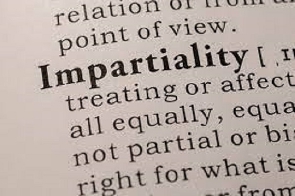It won’t be long before some overzealous, politically-influenced public broadcaster in a developing democracy decides to implement a copy-cat BBC ‘impartiality’ policy, to ban their journalists from expressing personal opinions on national issues on social media.
Authoritarian governments must be salivating at the prospect of finally being able to silence journalists in state-owned media houses who have been a thorn in their side, hiding behind ‘impartiality’ policies.
But, before the curtain goes down on this, the BBC itself said that its action against Lineker is not intended to create an opinion-free zone. And therein lies my confusion.
Journalists live among the people and have opinions just like everyone else. Whether they express those opinions publicly or keep their thoughts to themselves, it is hard to convince me that their opinions don’t have any influence on their reporting, line of questioning, or presentation.
If the journalist has been professionally trained not to be biased based on their personal opinion, then that journalist can do so whether their personal opinion on an issue has been expressed publicly or remains in their heads. As a citizen, I would prefer to know the opinion, ideology, or position that influences a journalist’s line of questioning and reporting, rather than being duped into thinking that the journalist is not influenced in any way by their personal opinion when the opposite is in fact true.
On a regular day, I listen to the BBC, Joy FM, and Citi FM, and then watch a bit of CNN and SkyNews. Do I expect professional, unbiased news, analysis, and reporting on all these networks? Yes, I do. Do I see the BBC as more impartial than the rest of them? No! In fact, during the 2022 Qatar World Cup, the reporting and coverage on the BBC were not dissimilar to what most international media from Western countries offered viewers and listeners.
Opinions of presenters and pundits on human rights, LGBT issues, and migrant workers’ rights were broadcast to the world in a matter-of-fact manner.
Where was the BBC’s policy on impartiality then, when this same Lineker was attacking Qatar with his opinions on the BBC itself as well as on Twitter?
I just hope officials of GBC, Daily Graphic, and other state-owned media in Ghana and elsewhere in Africa, won’t be thinking about copy-cat ‘impartiality’ policies in order to silence journalists who are seen as too critical of the government of the day (a.k.a. GOD)!
Opinions of Sunday, 12 March 2023
Columnist: Kwaku Antwi-Boasiako



















